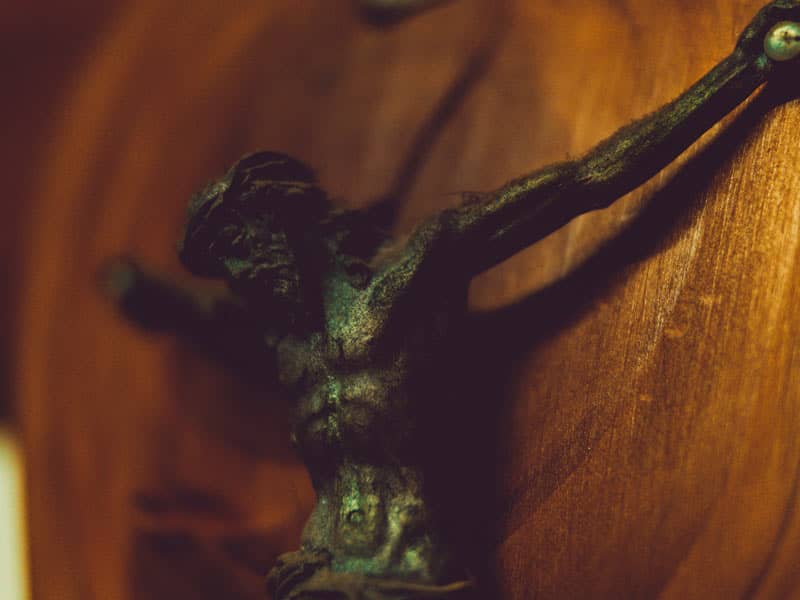On press speculations about "Pope Ratzinger":
"I have no doubt that if he were elected, Cardinal Ratzinger would be an effective and good pope. He is a warm, congenial man, and the fact that he tends to avoid the spotlight when he can suggests a personal humility that would be another key ingredient for a pope."
--Patrick Madrid, publisher, Envoy magazine

"I would be extremely upset if Cardinal Ratzinger were elected the next pope. ...It would also reaffirm the euro-centric hierarchy of the Church and a model of Europeans governing over Third World peoples."
--Dr. Michelle Gonzalez, Marymount University (currently doing research in Guatemala)
"My sense is that Ratzinger is definitely perceived differently by insiders than he is by the outside world (my husband this week heard a talk by retired SF Archbishop Quinn, who spoke highly of Ratzinger on the personal front, emphasizing how kindly he treated others, in contrast to other Curial types who treat even bishops "like altar boys."), and his homily at JPII's funeral only helped him.
...I wouldn't be disappointed with a Ratzinger papacy."
--Amy Welborn, Catholic author and blogger
On decentralizing power within the church:
"Cardinal Martini, former archbishop of Milan...has said that the church has become far too centralized in the past century, that we need a pope who will lead a radical de-centralization, a more collegial church. This is especially needed when the church is becoming every day more global, less European. I agree with Martini (and I am sorry he is not in the running!)."
--Harvey Cox, Hollis Professor of Divinity, Harvard University

"Catholics who were dissatisfied with Pope John Paul II's theological, liturgical, and pastoral decisions understandably want to see the Church 'decentralized,' insofar as such a shift would better enable them to pursue agendas that are incompatible with those of John Paul II. "Decentralization" can sometimes be code for 'less interference from Rome.'"
--Patrick Madrid, publisher, Envoy magazine
On roles for laypeople:
"We have to avoid falling into the trap of believing that you become more valuable to the Church if you have a powerful job or ministry."
--Domenico Bettinelli, publisher, Catholic World News

"There is already a strong message being sent about the role of the laity in Church decision-making: the cardinals have been ordered not to speak with the press in the week preceding the conclave. ...The silencing of the cardinals means the dialectic with the laity around the world in this crucial period is not possible."
--David Kertzer, author, The Popes Against the Jews

"I've worked in the Church my entire adult life, and been involved - as a lay person, both employed and volunteer, at the parish, school, and diocesan level. I've served on commissions, led communion services, preached at Masses, and hammered out mission statements. And more mission statements. And still more mission statements. Color me unimpressed."
--Amy Welborn, Catholic author and blogger
On the possibility of married priests:
"Apart from the monetary issues are the vocational issues. Only one vocation can have priority: Which one is it? When the doorbell rings at 1 a.m. and it's a scruffy, scary-looking, obviously tipsy guy who wants to talk about God, a married man with children asleep upstairs must turn him away. A celibate priest could have him come in, placing only himself at risk. A man cannot serve two masters."
--Domenico Bettinelli

"To imply that a married priest cannot have a vocation and that one is exclusive to the other is insulting to our Protestant brothers and sisters who are in ministry positions."
--Dr. Michelle Gonzalez
"JPII was...a superstar, a media event. ...But does this really contribute to the maturation of the kind of faith we need in this complex world?"
--Harvey Cox, Hollis Professor of Divinity, Harvard University

"John Paul had charisma, no doubt about it. So we now need a dull pope? Seems to me I recall an itinerant preacher who tromped around Palestine attracting enormous crowds a couple of millennia ago. If the next pope preaches Jesus and not himself--which is surely what John Paul II did--I guess my faith can stand the media coverage."
--Russell Shaw, former secretary for public affairs for the National Conference of Catholic Bishops
On the cardinals taking a "media vow of silence":
"There is already a strong message being sent about the role of the laity in Church decision-making: the cardinals have been ordered not to speak with the press in the week preceding the conclave. ...The silencing of the cardinals means the dialectic with the laity around the world in this crucial period is not possible."
--David Kertzer, author, The Popes Against the Jews

"I'm a bit skeptical that preventing the cardinals from talking to the media affects their ability to listen to lay voices. When they're being interviewed by reporters they're hearing reporters' voices."
--Domenico Bettinelli

"I'm not very happy either about the no-interviews policy adopted by the cardinals this time around. But having been there for the two conclaves of 1978, I guarantee you that the immediate run-up is a pressure cooker where people on the scene interact with one another and hardly at all with anybody else."
--Russell Shaw

"Is it really so surprising that the deliberating Cardinals should speak only among themselves? In fact, that is what the Church is doing, and has done for some time now."
--Rosemary Bray McNatt

"Media-wise, this is a completely different world than it was 26 years ago, with an terrifically higher level of scrutiny, commentary and information-gathering, and I can't begrudge those who would want the process to be shielded from that hurricane."
--Amy Welborn

